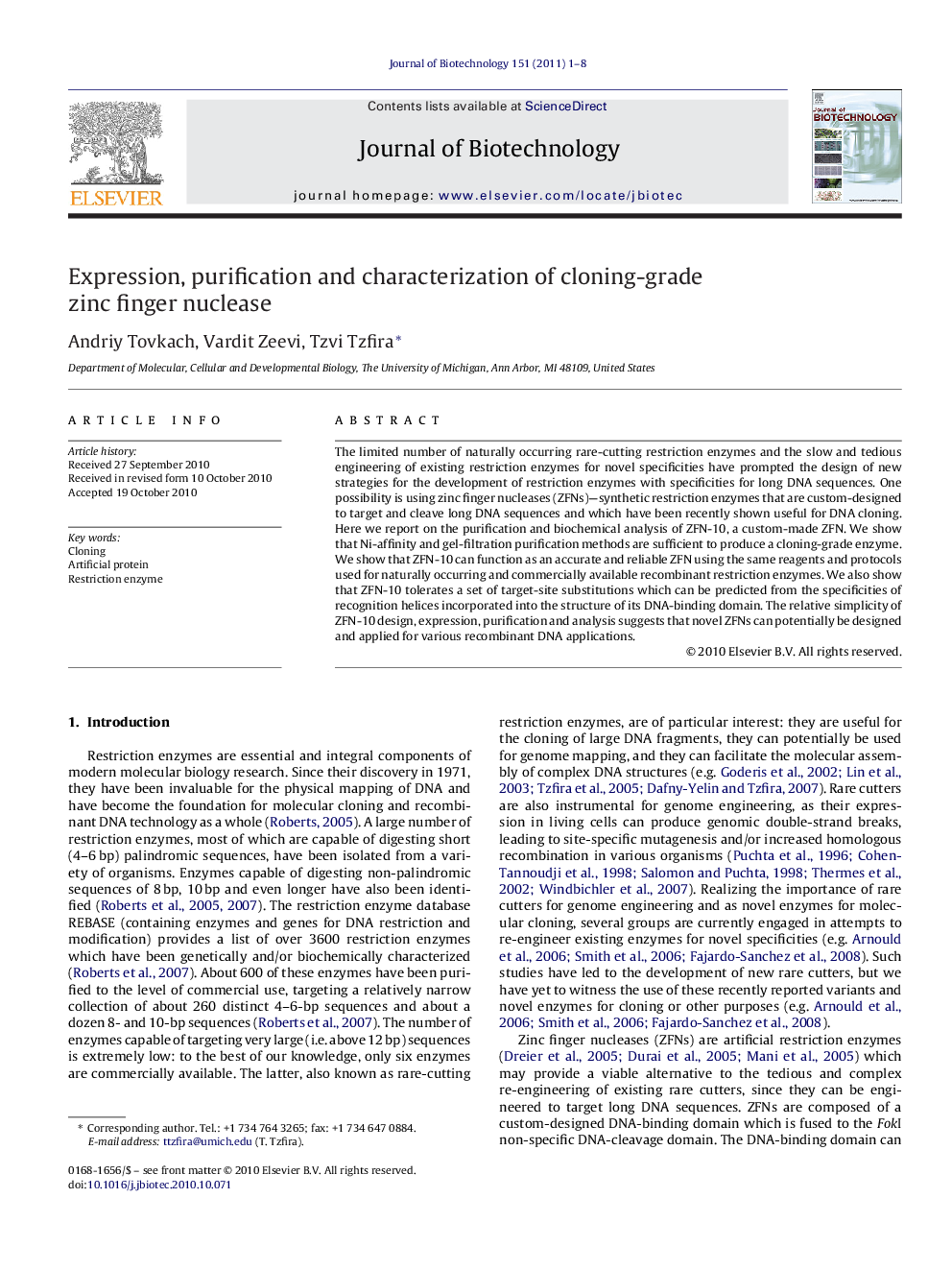| Article ID | Journal | Published Year | Pages | File Type |
|---|---|---|---|---|
| 23927 | Journal of Biotechnology | 2011 | 8 Pages |
The limited number of naturally occurring rare-cutting restriction enzymes and the slow and tedious engineering of existing restriction enzymes for novel specificities have prompted the design of new strategies for the development of restriction enzymes with specificities for long DNA sequences. One possibility is using zinc finger nucleases (ZFNs)—synthetic restriction enzymes that are custom-designed to target and cleave long DNA sequences and which have been recently shown useful for DNA cloning. Here we report on the purification and biochemical analysis of ZFN-10, a custom-made ZFN. We show that Ni-affinity and gel-filtration purification methods are sufficient to produce a cloning-grade enzyme. We show that ZFN-10 can function as an accurate and reliable ZFN using the same reagents and protocols used for naturally occurring and commercially available recombinant restriction enzymes. We also show that ZFN-10 tolerates a set of target-site substitutions which can be predicted from the specificities of recognition helices incorporated into the structure of its DNA-binding domain. The relative simplicity of ZFN-10 design, expression, purification and analysis suggests that novel ZFNs can potentially be designed and applied for various recombinant DNA applications.
